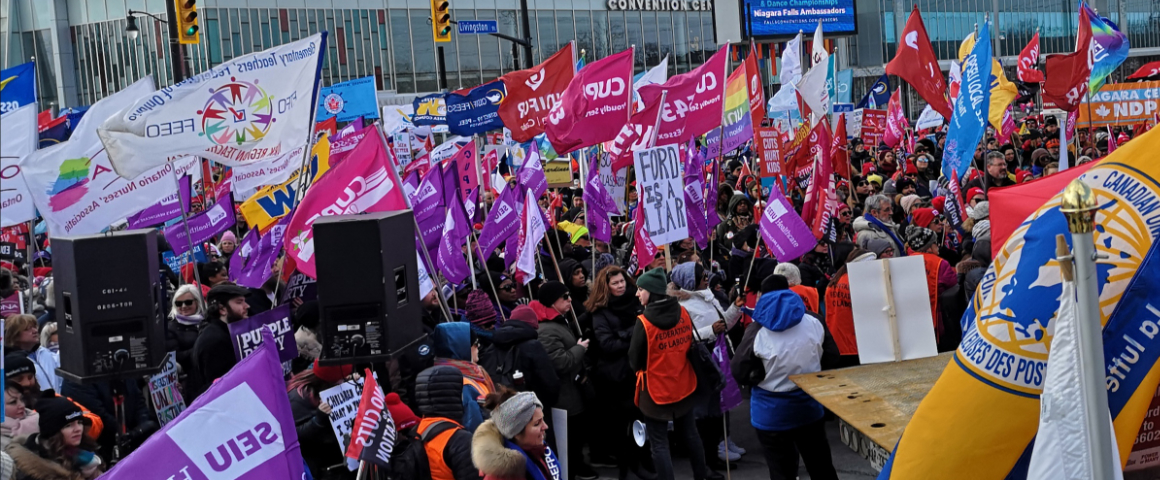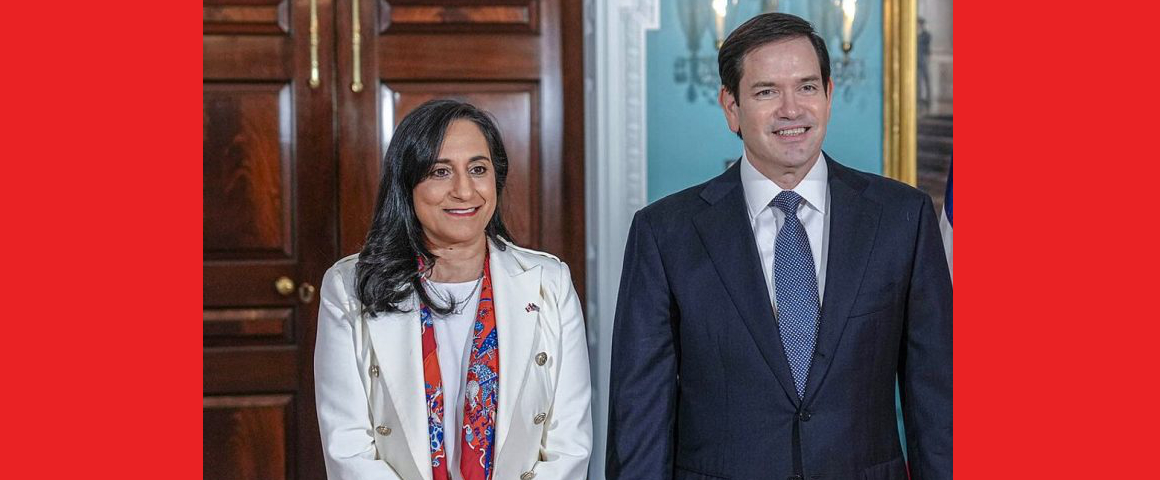PV staff
Very soon, the Ontario Federation of Labour will launch its province-wide campaign to increase wages, reduce prices and improve public services like healthcare, education and housing.
In the wake of the Ontario Conservatives’ electoral victory last year, and in the current context of soaring prices and reduced real wages, the “Enough is Enough” campaign has the potential to turn widespread frustration and discontent into a powerful mass social movement for progressive advance.
The OFL has presented some very good demands in the campaign, generally reflecting working people’s immediate concerns and pushing some fairly far-reaching solutions.
On the issue of incomes, the campaign focuses squarely on the issue of real wages and notes that consumer prices in Ontario are increasing by as much as twice the rate as wages. Citing the province’s average living wage of $19.72 per hour and the fact that at least 863,000 Ontarians in 571,000 households live in deep poverty while receiving social assistance, it calls for a $20 minimum wage and doubling of social assistance rates. It also calls for a halt to the government’s appeal of the court ruling which overturned Bill 124 (broader public sector wage and benefit cap), for the restoration and expansion of decent work laws including paid sick days and equal pay for equal work, and legislation making it easier for workers to join a union.
On healthcare and education, the campaign says, “Enough is Enough!” to Ontario’s bottom-of-the-pile per capita health spending, day-long emergency room wait times and tumbling funding for public schools. It calls for an end to privatization of education and healthcare, increasing staffing for healthcare, proper funding and elimination of user fees for all public services, slashed post-secondary tuition fees, affordable and accessible childcare and free and accessible transit.
Noting that grocery costs for a typical family will rise by $1065 this year while corporate grocers continue to enjoy enormous profit increases, the campaign is pushing for government action to stop price gouging, impose price caps on basic goods including groceries and fuel, and tax the profits of food and oil corporations. In response to a nearly 50 percent increase in food bank use since 2018, it calls for a Right to Food law to guarantee universal free school meals.
On the issue of housing, the campaign proposes a series of policies and programs to address the immediate crisis. Among these are real rent controls and a Tenants’ Bill of Rights, a halt to evictions and foreclosures, and a cap on mortgage payments as inflation rates rise. Some of the demands, though, could go be more specific or bolder. For example, while the campaign calls for a province-wide public housing program “that builds decent homes in every community,” it could specify that the province needs to provide rent geared to income (RGI) rental housing. Similarly, while the campaign includes rent controls, it falls short of calling for rent rollbacks – this is particularly urgent given that rents are already out of reach for many people.
The section on corporate taxation is a bit confusing. On the one hand, the campaign notes that the highest-paid corporate executives in Canada “shattered records for compensation” by earning an average of $14.3 million in 2021, and that corporate profits have skyrocketed. However, the policies which are put forward to address this accelerating inequity are very modest: a tax on record profits, restored tax rates for the highest individual earners, ending corporate tax breaks and loopholes and fining those that do not pay. A bolder approach is needed here, one that will double the corporate rate, introduce plant closure legislation with real teeth, and demand the public takeover and operation of key industries like banking, energy and transportation.
Unfortunately, three key areas seem to be missing altogether from the campaign demands. Nothing is said about climate and environmental justice, military spending or Indigenous rights and sovereignty. Important in their own right, all of these relate intimately to the other themes which the campaign (rightfully) identifies – jobs, development, services, funding – so it will be important for workers in Ontario to press for their inclusion.
In general, though, “Enough is Enough” appears to be a strong step in the direction of the kind of independent labour political action that working people in Ontario desperately need the OFL to initiate and lead. It is certainly a promising departure from the election countdown clock which dominated the OFL’s website for the past four years.
Yet, there is a difference between words and actions. The OFL’s previous campaign, “The Power of Many,” was little more than a branding exercise for the NDP as “labour’s party” – as a campaign for a better society, it was an utter failure to launch.
If “Enough is Enough” is going to translate into real action, workers in Ontario will need to push the OFL leadership and the heads of unions to make it happen. Here are some ways they could do it:
Develop the campaign as the basis for a structured common front that can unite labour and community groups in an escalating fightback that includes the political strike weapon. There is a real danger that the focus will be on lobbying, which is not a winning strategy – there needs to be mass political action now.
Use the campaign to rebuild unity of the labour movement, on a class struggle basis. The dispute between the heads of Unifor and the CLC may not have a simple resolution. But, at the same time, simple unity on paper doesn’t advance working class interests. Local anti-cuts assemblies, bringing together all unions and community organizations that are committed to building a mass campaign, are the best vehicle for developing strong unity through coordinated action.
Include in the campaign the organization and mobilization of community-labour solidarity flying squads, to support and defend local struggles. As the strike movement continues to build, bosses and governments will try to weaken it using picket injunctions and back-to-work legislation. Coordinated mass solidarity, that includes cross-picketing and direct action, is proven to be an effective tactic.
Workers in Ontario have a lot to gain by building the OFL’s “Enough is Enough” campaign – unfortunately, they have a lot to lose if the campaign is weak. The time to organize and build is now.
Get People’s Voice delivered to your door or inbox!
If you found this article useful, please consider subscribing to People’s Voice.
We are 100% reader-supported, with no corporate or government funding.




